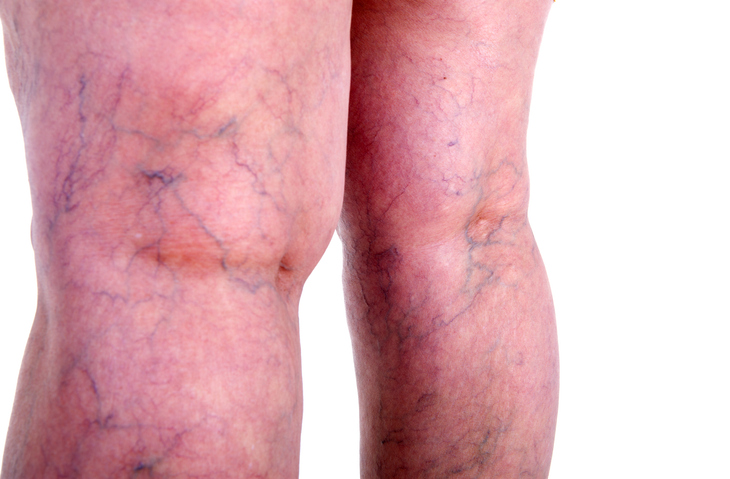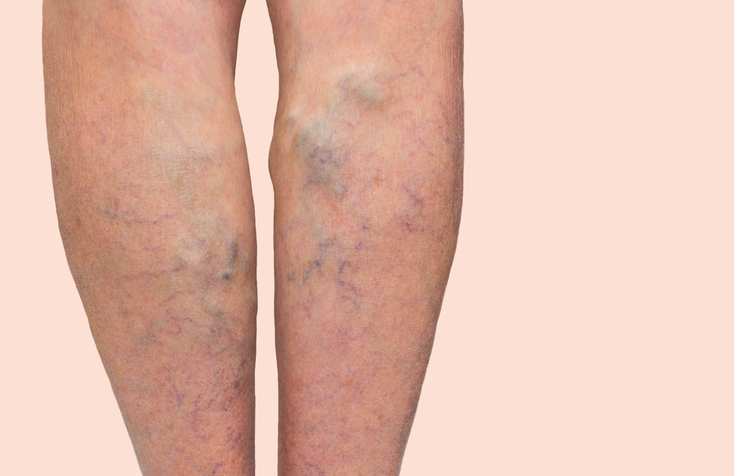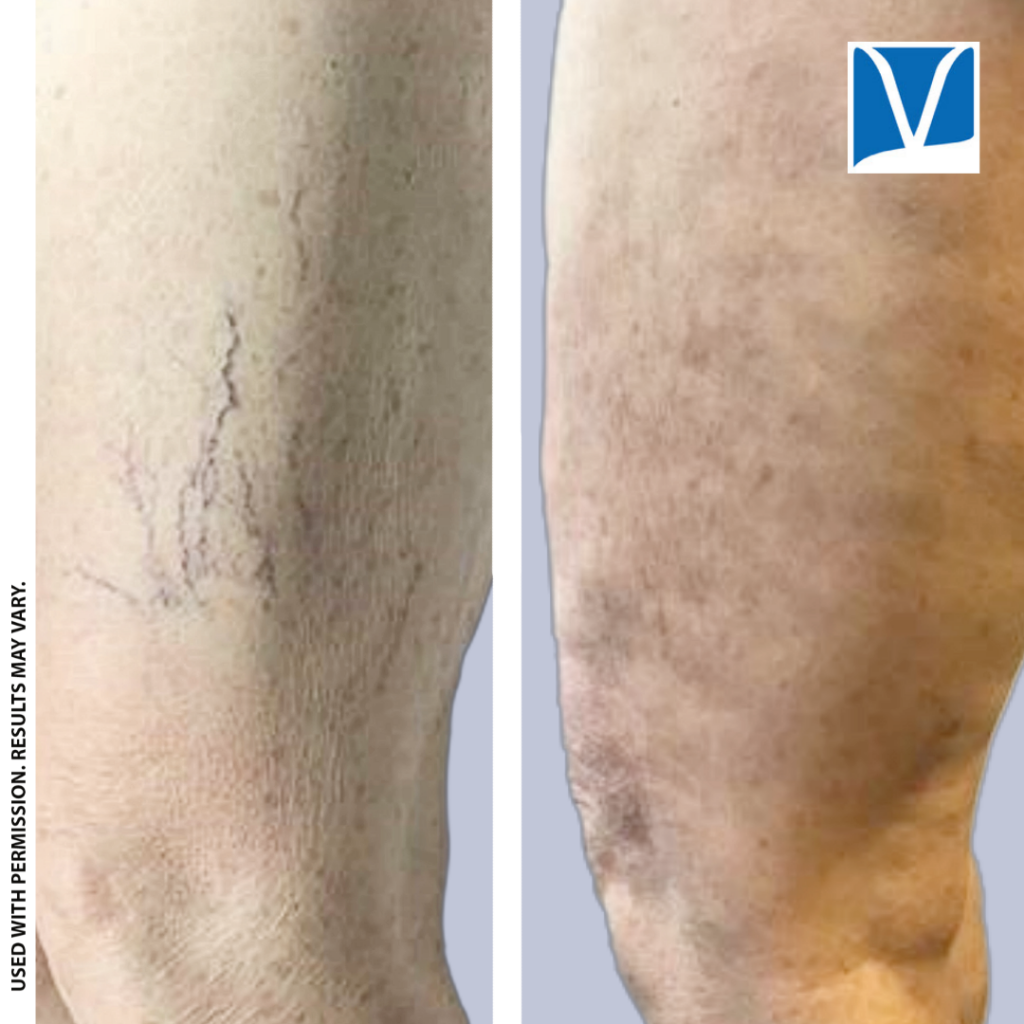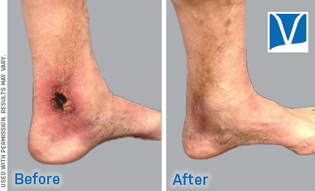If you’ve suddenly noticed blue or green veins showing through your skin, it’s understandable to be concerned. There are several reasons why veins become visible – and while many are harmless & typical, there are a few specific symptoms to look out for that may be signs of a bigger issue.

Causes of Visible Veins
Knowing the factors that can contribute to visible veins can help you better understand why they are suddenly more prominent. Those that are worried about their blue veins should consider the following:
- Skin Tone: Do you have a fair or dark complexion? The lighter the skin tone, the more visible veins tend to be.
- Age: It is common for skin to become thinner as we age, allowing for veins to appear more prominently.
- Weight/Body Mass Index (BMI): Our weight directly impacts our veins. People with low body fat will have veins closer to the skin, while excess weight can cause venous disorders by applying additional pressure to veins. Both will cause veins to be more visible.
- Exercise: Veins are doing more work while we exercise, and may become more visible – especially during periods of vigorous activity. Likewise, veins should also become less visible during periods of rest post-workout.
- Hormones: Hormonal changes or hormonal imbalances can lead to visible veins, such as during pregnancy, after switching birth control methods, or due to thyroid disorders.
- Genetics: Similar to other medical conditions, those with relatives that have visible veins are more likely to develop them in their lifetime.
- Hot Weather: Heat causes veins to dilate, which boosts blood flow and leads to more prominent veins. Sun exposure and sunburns can increase vein visibility as well.
- Smoking or Drinking: Both cause veins to temporarily dilate, which will increase vein visibility if done habitually over a long period of time.
- Prolonged Sitting or Standing: People who regularly sit or stand for long periods of time (such as desk workers, waiters, nurses, etc) are more likely to develop visible veins.
- Venous Insufficiency: A common factor that causes varicose veins and spider veins, while also contributing to conditions like restless leg syndrome, blood clots, and leg cramping, itching, swelling, or heaviness. Venous insufficiency is present in an estimated 40% of Americans, and without treatment, can develop into more serious health issues.
Should I Worry About Sudden Prominent Veins?
If your visible blue veins are not accompanied with any additional symptoms, they are likely spider veins. Although they are not a cause for medical concern, spider veins may cause people to feel self-conscious about the areas where they appear. Luckily, spider veins can easily be treated to be less visible.

If you are experiencing any pain or discomfort from your prominent veins, and/or if they are raised above the skin, they are more likely to be varicose veins. Varicose veins are a sign that your vascular system isn’t working properly, so if left untreated, they can put you at risk for potentially dangerous health conditions. Contact a vein specialist if you are experiencing any of these common signs and symptoms of varicose veins.
The sudden appearance of prominent blue veins accompanied by skin discoloration or non-healing leg wounds can indicate Deep Vein Thrombosis (DVT). If you notice these symptoms, we recommend seeking care immediately, as this can become a medical emergency.
Contact a Vein Specialist
At Inovia Vein Specialty Centers, we focus entirely on managing issues related to venous insufficiency. This includes the evaluation and treatment of varicose veins, spider veins, DVTs, venous stasis ulcers, and more.
For an assessment of your visible veins, or to learn more about treatment options, simply fill out our Online Vein Screening Form or call any of our clinics in Northwest Portland , Tigard, Happy Valley, Hillsboro or Bend, Oregon.


